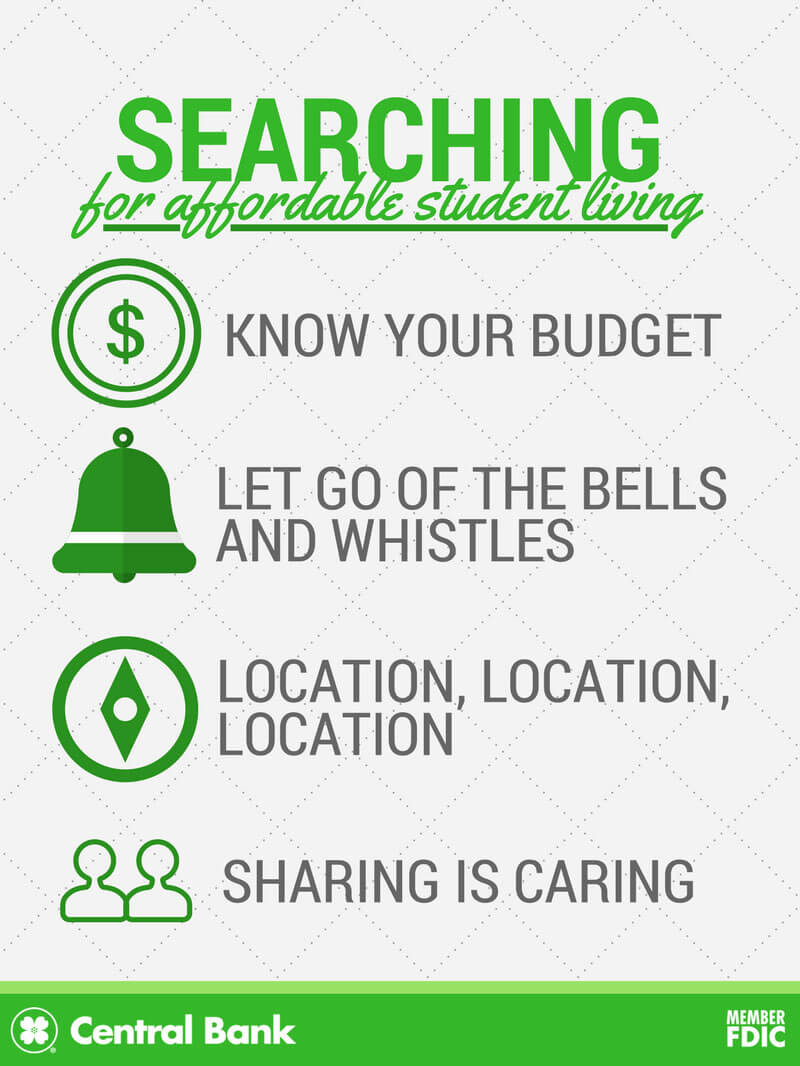It’s been two life changing semesters, but now it’s time to leave your freshman abode behind. Chances are this is the first time that you won’t be living with either your parents, or in the dorms. The phrase “apartment hunting” raises the stress of the unknown, paired with the promise of a large financial burden that you will be shouldering yourself. Worry not, here are a few tips to help with your search for that affordable apartment.
Know Your Budget. The first thing, and perhaps the most obvious, is to know your month-to-month budget for covering rent, utilities, and other living expenses. When calculating your budget be sure that you stay realistic in regard to your spending habits. This isn’t to say you shouldn’t curb your entertainment-related purchases when moving out, but you should be true to yourself when thinking about how much you spend on necessities. For example, it isn’t realistic to expect to spend only $50 on groceries a month. In a 2015 survey conducted by Save the Student, it was found that on average a student spends approximately $840 a month. With $420 of that going to rent, and $125 of that going to food-related expenses. Food and rent being the largest sums taken out of a student’s budget [1]. However, depending on the market you’re in and your lifestyle, there will be fluctuation on the cost of rent.
Let go of the Bells and Whistles. Many student housing complexes brag on state-of-the-art gyms, swimming pools, tennis courts, and already furnished apartments. These extra amenities sky rocket the cost to live there and, in most cases, the rent price does not even include the utilities involved with the unit. Though you may have to let go of the luxurious life, finding an apartment with only the basic essentials, washer, dryer, dishwasher etc., greatly drops the cost in comparison to the ritzier student living. Hidden costs can add up quickly, so be sure to do your research before signing a lease.
Location, Location, Location. Though it seems like common sense to try and find the closest apartment to campus, typically the closer you get to campus the more expensive apartments get. Depending on your mobility, you will want to go through the Goldilocks process of finding the right apartment location; not too close, not too far, but just right. Sacrificing a short walk to campus, for a short drive to campus, can shave off $100 of rent. It all depends on how far you are willing to commute.
Sharing is Caring. People have a multitude of roommate horror stories, but the fact still stands that having a roommate will alleviate some of the cost of rent. Dividing rent and utilities into 2’s or 3’s will take off a large financial burden from your shoulders. Just be sure that all parties are signed onto the lease, so everyone will be held accountable. Many apartments will have units built to house 2-3 people, so stay away from those solo units until you have a more disposable income.
Though apartment hunting is stressful, understanding the logistics now will save you a lot of time and money down the road. Learning to live on your own is a large part of becoming an adult, and though there isn’t an exact science to being an adult, we’re to help you begin your journey to adulthood!

Source:
[1] Student Money Survey 2015 – Results, Save the Student